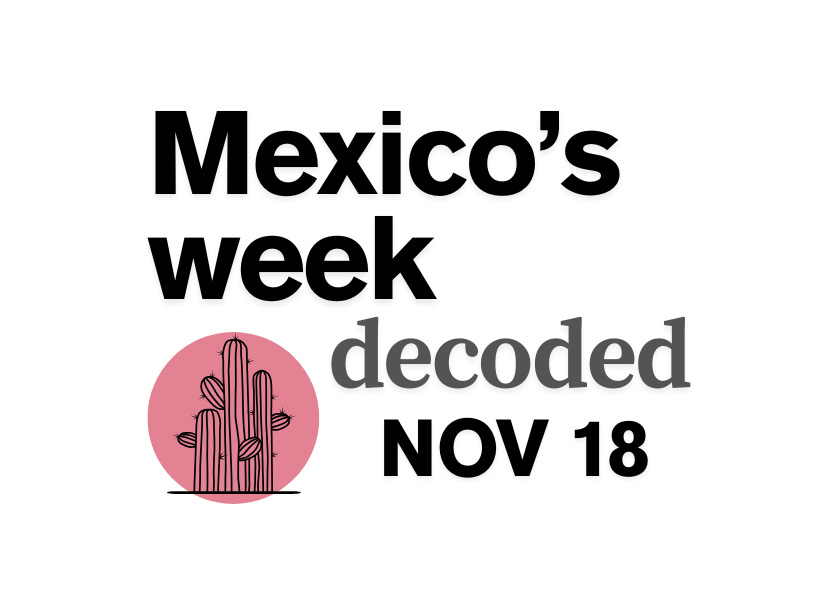Amphibian Crisis, Trump's Extortion & 40-Hour Reform
Mexico Decoded’s weekly briefing makes sense of the news that matters
1. Protests in Mexico City
Last Saturday, roughly 17,000 people marched through Mexico City’s historic center in what was presented as a Gen-Z-led protest, sparked by the murder of opposition mayor Carlos Manzo and broader concerns about violence and crime in the country.
Decoded:
While anger over public safety is legitimate, this march was astroturfed. Participants were older and linked to opposition and millionaire-backed protests. The organizers’ efforts to pass as Gen Z, using clumsy anime references, backfired, with many young people openly boycotting the event.
2. The 40-Hour Reform
The Mexican government confirmed it will introduce a bill on November 20 to cut the standard work week from 48 to 40 hours.
Decoded:
Business groups warn labor costs could jump by 71%, with two-thirds of companies opposed. Still, the reform would bring Mexico in line with global norms. No OECD country except Colombia works longer hours than Mexico.
3. Trump Extorted Mexico’s Airport Authorities
Mexico granted U.S. cargo companies preferred slots at Mexico City’s main airport after the U.S. Transportation Department threatened to abruptly cancel 13 Mexican cargo routes if it didn’t comply.
Decoded:
Trump is squeezing advantages for U.S. companies through outright pressure — a form of unfair trade that shows the big player strong-arming the smaller one, out in the open.
4. Mexican Tycoon Loses Tax Battle
Mexico’s Supreme Court ruled against billionaire Ricardo Salinas Pliego in his 17-years-long fight with the federal government, ordering him to pay $2.7 billion USD in back taxes. It’s one of the largest fiscal rulings ever issued against a single individual in Mexico.
Decoded:
Collecting won’t be easy. Salinas’s companies employ tens of thousands, so aggressive enforcement could hit jobs and the economy. It’s a classic dilemma: holding an oligarch accountable without destabilizing his business empire.
5. Mexico’s Amphibian Bill Crisis
In 2021, Mexico’s central bank released a new 50-peso bill featuring an axolotl — a rare, pink, smiling amphibian native to Mexico City. According to the bank’s own data, 83% of the bills — about 10 million notes — have vanished from circulation, hoarded as collectibles.
Decoded:
The craze has spawned a thriving resale market, with some notes listed online for tens of thousands of dollars — and spark market that the central bank never saw coming.


